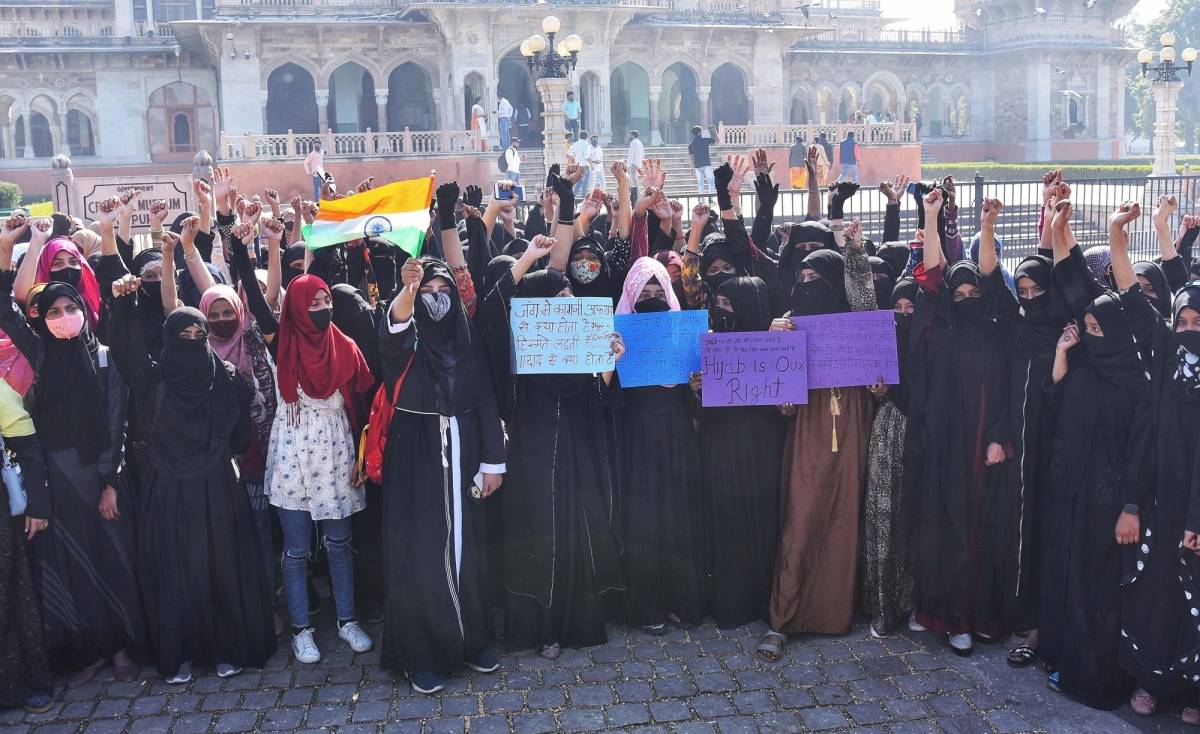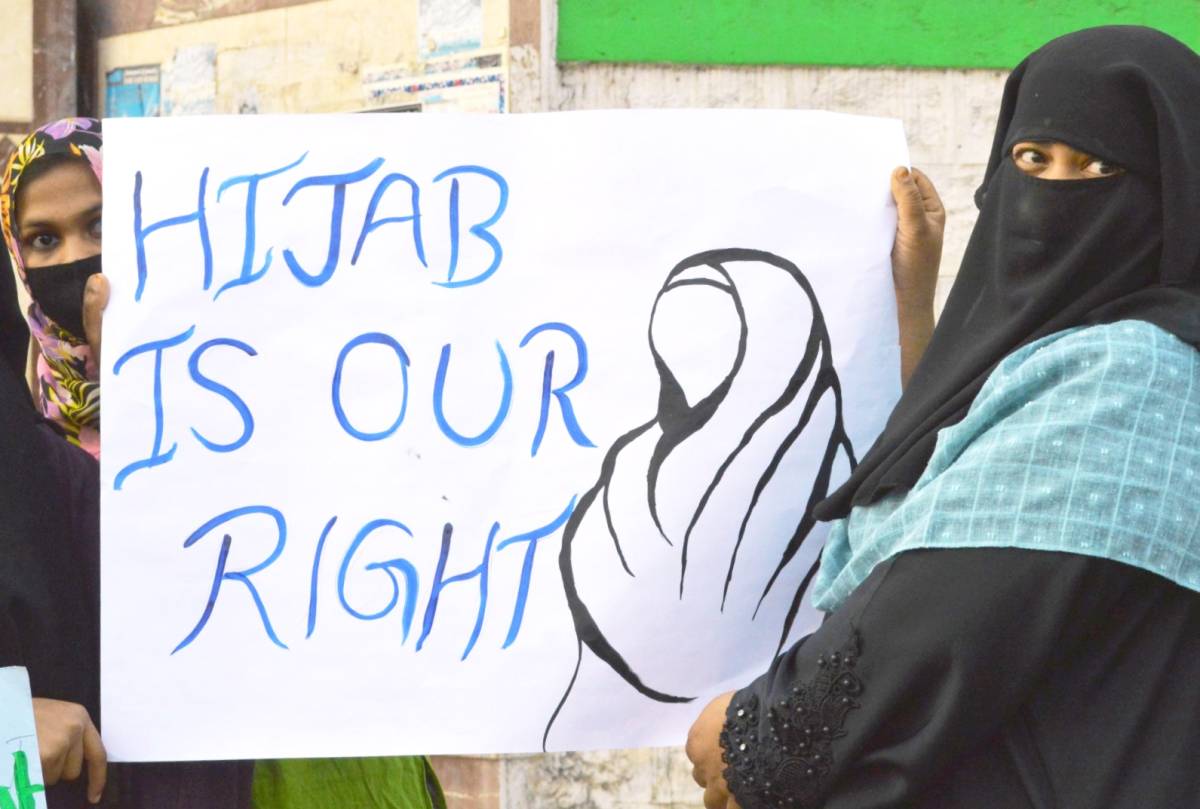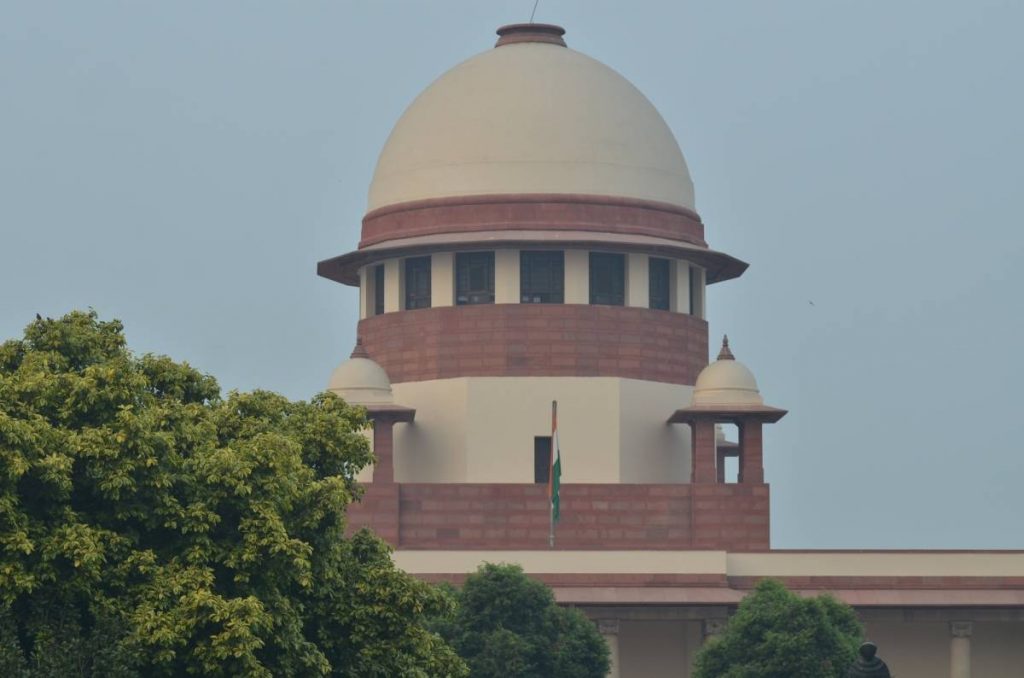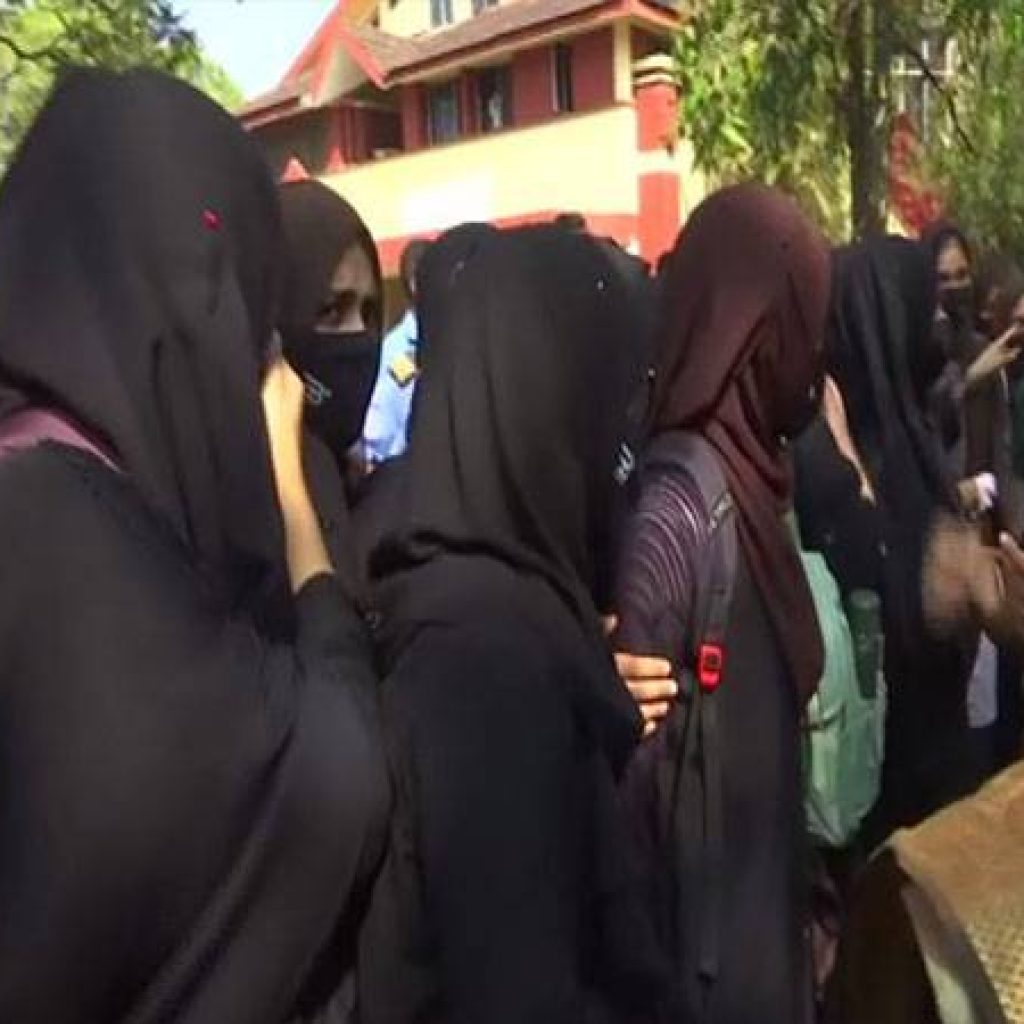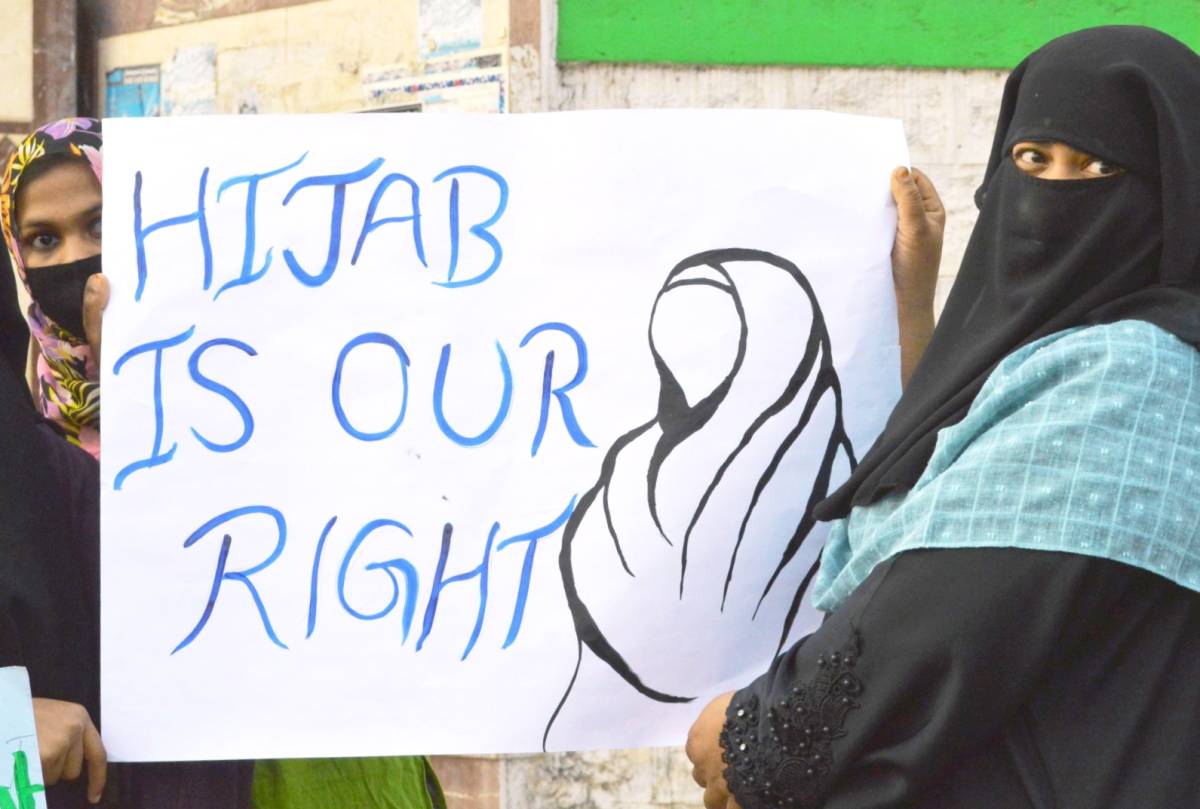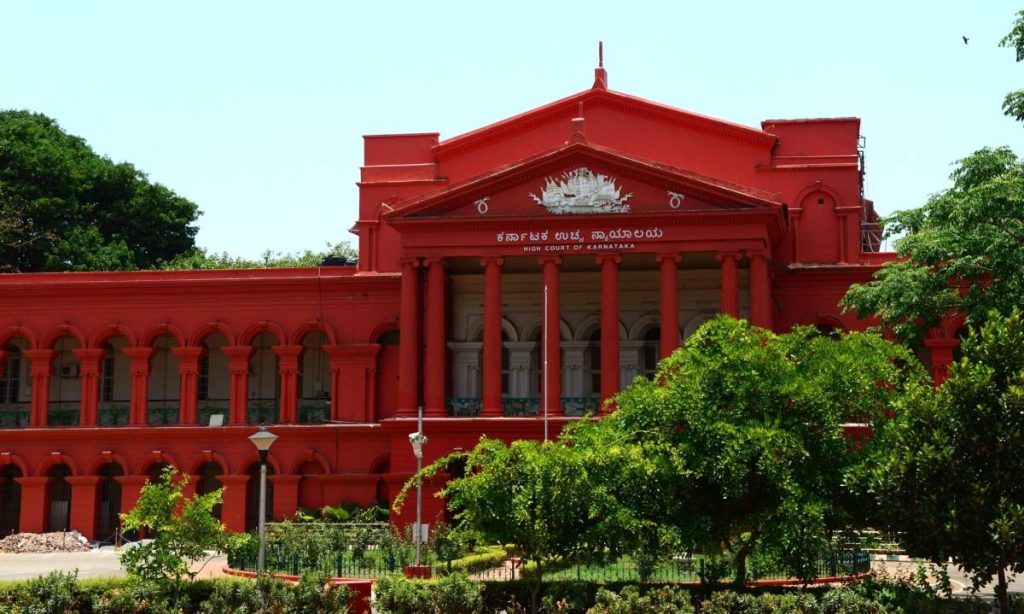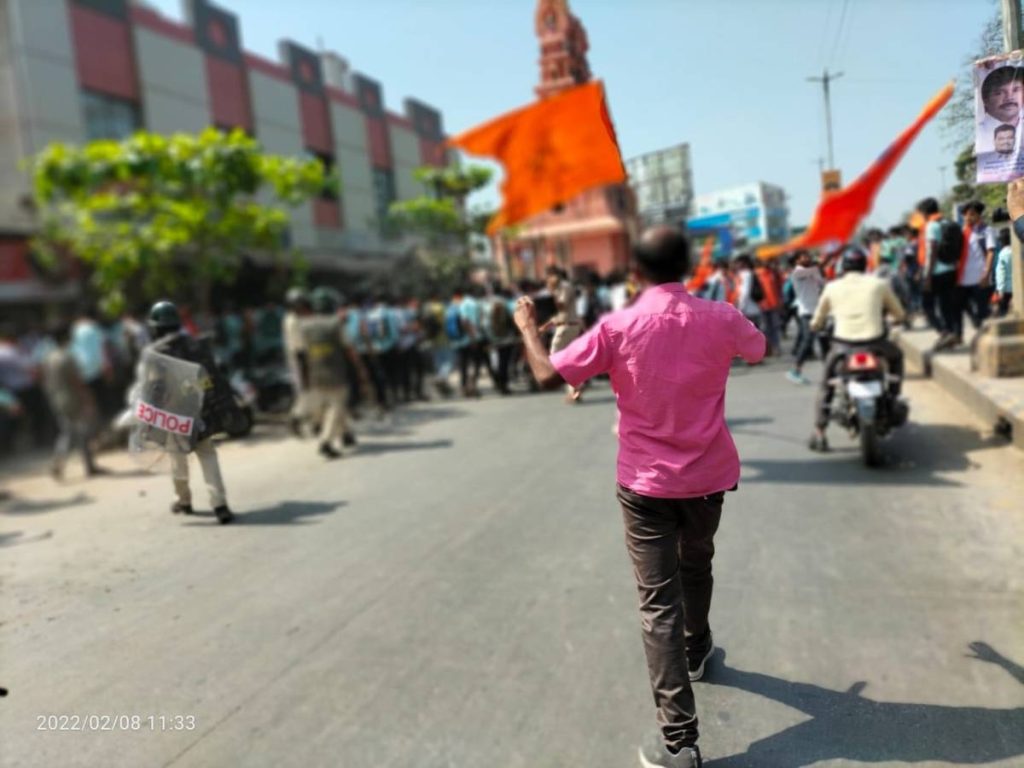Amid the ongoing hijab controversy in Karnataka, Bihar Chief Minister Nitish Kumar on Monday said that he respects every religion and their rituals of worshipping…reports Asian Lite News
The General Secretariat of the Organization of Islamic Cooperation has expressed deep concern over recent public calls for the genocide of Muslims in Haridwar in India’s Uttarakhand state. It also condemned reported incidents of harassment of Muslim women on social media, as well as the banning of female Muslim students wearing the hijab in Karnataka.
The continued attacks on Muslims and their places of worship, the recent trend of anti-Muslim legislation in different states and rising incidents of violence against Muslims are indicative of the growing trend of Islamophobia, the OIC said.
It called upon the international community, especially the UN and Special Procedures of the Human Rights Council, to take necessary measures in this regard.
The OIC urged India to ensure the safety, security and wellbeing of the Muslim community, protect the way of life of its citizens, and bring perpetrators of acts of violence to justice.
Court order can’t curb fundamental rights, say petitioners
The government can’t restrict fundamental rights in the garb of maintaining public order, the counsel for the girl students seeking permission to wear the hijab told the Karnataka High Court on Monday.
Meanwhile, the high court refused to intervene to restrain media from reporting the case hearing, as the advocate defending petitioners submitted that the hijab case will have an impact on voting in states where elections are underway. Chief Justice Ritu Raj Awasthi stated that if at all they can do something, they will have to stop live streaming of the court proceedings. Other than this, they can’t take any measure to restrict media.
During the hearing on Monday, senior advocate Devdatt Kamat told the bench of Chief Justice Awasthi, Justice Krishna S. Dixit and Justice Khaji Jaibunnesa Mohiyuddin that the College Development Committee (CDC) has no legal statutory basis to frame rules on uniforms.
“The government’s decision in this regard shows lack of wisdom and a legislator heading the committee will decide on fundamental rights. It is not legal to restrict the wearing of hijab,” he argued.
Kamat stated that all Central schools run by the Central government are allowing the wearing of hijab and petitioners have been wearing hijab of the same colour as the uniform since long.
“The state has made a fatal error while referring to public order in its circular. There is not even mention of Article 21 in the quoted order by the government on the basis of which the circular restricting hijab is issued,” he said.
He maintained that the state is an outsider when it comes to the point of belief, though it seems regressive to others. Authorising college committees is equal to making mockery of the fundamental rights, he said, while maintaining that maintaining public order is an enshrined responsibility of the state and it can’t deny rights and say because certain acts incites violence, they are restricting students from wearing hijab.
Advocate Kamat pleaded that the bench should permit students to wear hijab of the same color of the uniform.
The bench subsequently adjourned the matter till Tuesday.
The bench had last week given an interim order that no religious symbols are allowed for the students in schools and colleges until the final order of the court, thus barring use of both hijab and saffron shawls in the school and college premises.
However, petitioners moved the Supreme Court challenging the interim order but it had rejected the demand of urgent hearing by petitioners and said that it will only interfere at an appropriate time. The state government has resumed function of schools till Class 10 and is expected to take call on reopening colleges soon.
The hijab row which started last month in Udupi Pre-University College by six girl students, has snowballed into a major crisis in the state and has hit international attention too.
Hijab not an issue in Bihar, says Nitish Kumar
Amid the ongoing hijab controversy in Karnataka, Bihar Chief Minister Nitish Kumar on Monday said that he respects every religion and their rituals of worshipping.
“If anyone wears a scarf on the head or sandalwood mark on the forehead, I believe it is not a controversial subject. Every person has a right to wear whatever they want. We have no interference. You never witness any single incident of such controversy in Bihar. It cannot be an issue of discussion,” he said.
After the hijab row rose in Karnataka and saw tension and charged statements, Janata Dal-United’s Parliamentary Board President Upendra Kushwaha termed as “traitor”, Karnataka Minister K.S. Eshwarappa who had said that the saffron flag could become the national flag after 100, 200 or 500 years in the country.
“The leaders of BJP insulting Samrat Ashoka, are now campaigning for demolishing our national flag. How could our country tolerate it?”
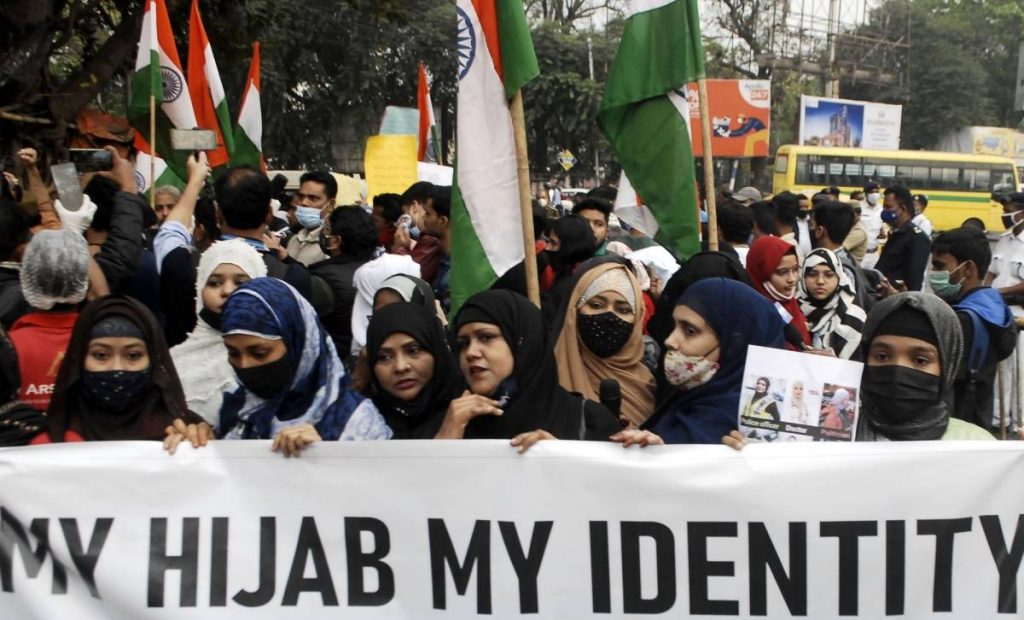
“I am urging Prime Minister Narendra Modi and Chief Minister BS Bommai to take appropriate action against traitors like Ishwarappa,” Kushwaha said in a tweet.
RJD President Lalu Prasad Yadav, while reacting to the Hijab controversy, said that the country is heading toward civil war and Prime Minister Narendra Modi and the ruling BJP are responsible for it.
“… PM Narendra Modi does not talk on inflation, unemployment, poverty and other issues. He always talks about temple-mosque, riots and religions. The people of the country are tired of the propaganda of BJP and Narendra Modi,” he said.
ALSO READ-‘Kedarnath’ a genuine attempt to create harmony: Abhishek

